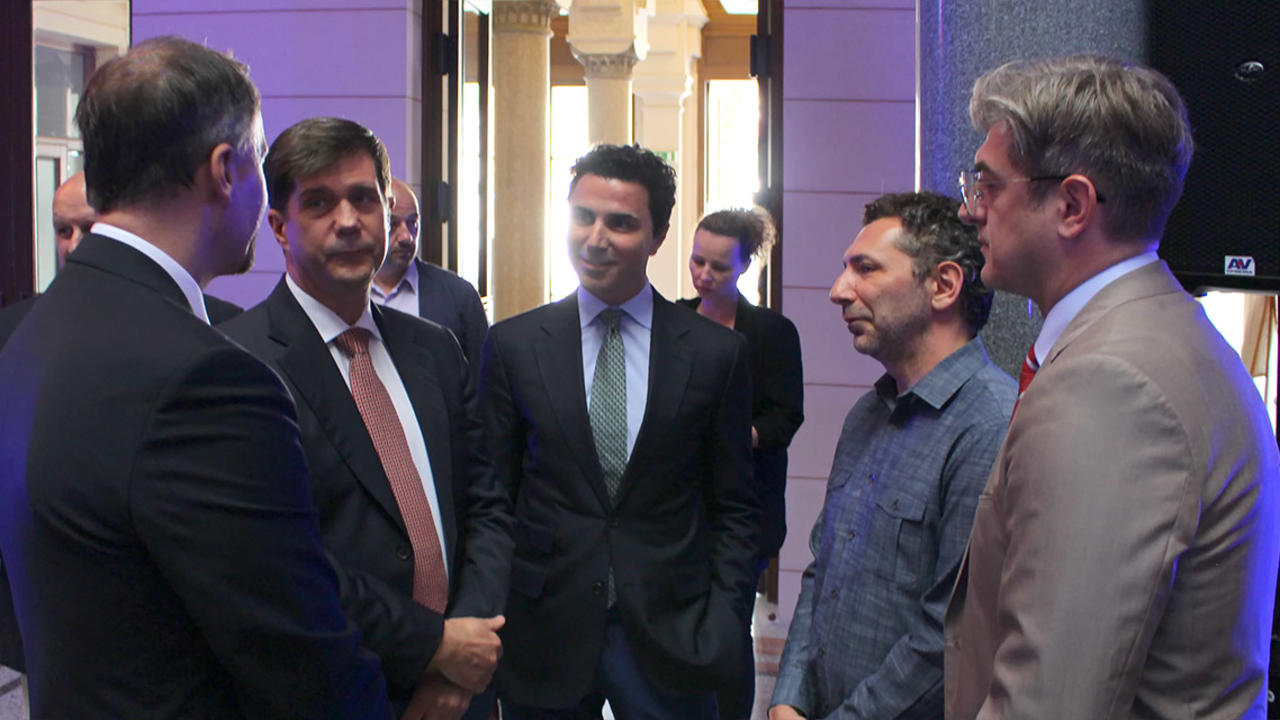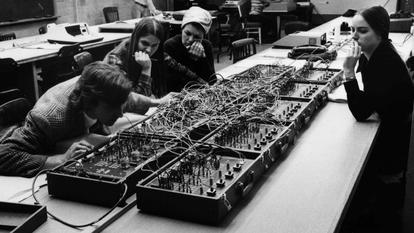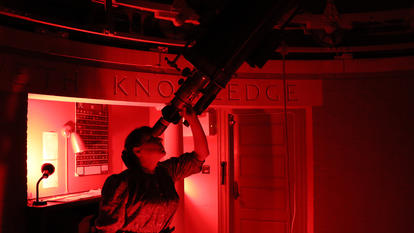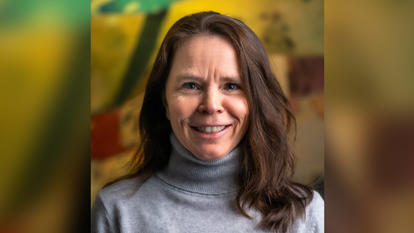What I Did This Summer: Professor Ismar Volić, Mathematics

After the last exam of spring semester is graded and most students have departed from campus for summer internships, jobs, and travel opportunities, what do Wellesley professors actually do during the summer? For the next five Thursdays, learn what happens in the lives of faculty members as they explore, create, collaborate, and conduct research across the world (or right here at Wellesley!)—or even summit one of the tallest mountains in our hemisphere.
First, mathematics professor Ismar Volić takes us to Bosnia, where he planned and led an annual conference, and to Sarajevo, where he spoke to the United Nations on the advancement of STEM education and the arts. We then return to Wellesley, where Volić spends time with his children, continues work on his research, and teaches a math and politics workshop as part of One Wellesley Summer.
Q: Tell us a little bit about your summer. What were the highlights?
Ismar Volić: At the beginning of the summer, I spent some time in Bosnia, where I am from originally. I am a member of the board of directors of the Bosnian-American Academy of Arts and Sciences (BHAAAS), an organization that gathers Bosnian-American professors, doctors, artists, and other professionals with the goal of advancement of education and arts in Bosnia. We have for the past eleven years organized the Days of BHAAAS in Bosnia conference, and I was one of the principal organizers for the last two years. This is the biggest scientific event in Bosnia and beyond. This year, the conference consisted of 16 symposiums in medical, natural, and technical sciences, with over 300 lecturers from all over the world, so I was very busy helping organize and run this event.
I am also involved in various efforts to bring quality STEM education to Bosnia, so I organized a session on this topic during the conference. I brought together various people who are at the forefront of this effort for a panel discussion, including a minister of education, representatives of NGOs and the tech industry, teachers, professors, and parents. The new U.S. Ambassador to Bosnia is also trying to help STEM grow in Bosnia, and he and I had an excellent lunch meeting during which we discussed various possible next steps.
I gave a talk about STEM education at the United Nations office in Sarajevo and met some people from UNICEF there. They run a cool program called IT Girls, in which they organize classes and workshops to teach high school girls how to program, build websites, and so on, with the ultimate goal of bringing them into the technology workforce. This is a part of the worldwide initiative the UN agencies have of empowering and educating women. I’d love to see Wellesley partner with IT Girls, so I’m planning to talk to various people on campus to see if we can somehow bring some of these girls to participate in one of our summer science programs.
The other exciting thing I did this summer was to teach a math and politics workshop as part of the Wellesley summer exploratory program for high school girls. It was a fantastic new experience! This topic is very different from what I usually think about in my teaching and research. It fascinated and engaged me in a novel way, giving me a new perspective on various issues in mathematics, social choice theory, game theory, and so on. I am also teaching a first-year seminar on this topic next spring, so this workshop helped me clarify and distill what I want to do in that class.
Q: When you aren’t traveling, what does a typical day look like for you during the summer?
Volić: I hang out with my kids a lot because my wife gets very busy during the summer (she is a landscape designer). But my kids also spend some time at day camps, so I still have some time to work. During those precious hours between camp drop-off and pickup, I make sure to spend some time each day lamenting the swift passage of that very day—and consequently the summer—during which I invariably do not manage to accomplish all that I so enthusiastically set out to do back in May. Luckily, I have tolerant coauthors who share my apparent cluelessness about the actual length of the summer. During the remaining hours, I try to work on any one of the several projects I have, finish writing some papers, and get some new ideas off the ground. I am lucky that all I need for my research is paper and pen, so I can take my work anywhere. The location of choice is usually one of several coffee shops in Wellesley or Natick.
Q: What is one thing you want students to know about your work?
Volić: Mathematics research can seem so abstract that it appears inaccessible to students. Although it is true that a lot of what we do requires a considerable amount of background machinery, we are also very good at carving out manageable pieces that are amenable to undergraduate investigation and provide gateways to other exciting mathematics, pure and applied. I know that I speak for my colleagues when I say that students should feel free to approach us, ask us what we do (other than teach) and get informed about the ways in which they too can get involved in some cool—and often very applicable—mathematics.
Q: What’s the most interesting aspect of your summer that you plan to take with you into the next academic year?
Volić: The math and politics workshop that I mentioned will definitely inform various things I do for a while. The extent to which mathematics can be abused for purposes of exclusion, disenfranchisement, and disempowerment is staggering. I feel I need to do my part in battling this—especially now, when so many powers are waging an unprecedented war on reason, logic, and intellectual rigor.
Photo: Ismar Volić (second from right) meets with Eric Nelson (second from left), the U.S. Ambassador to Bosnia and Herzegovina, and members of a USAID delegation including Peter Duffy (right), the mission director of USAID in Bosnia and Herzegovina.



